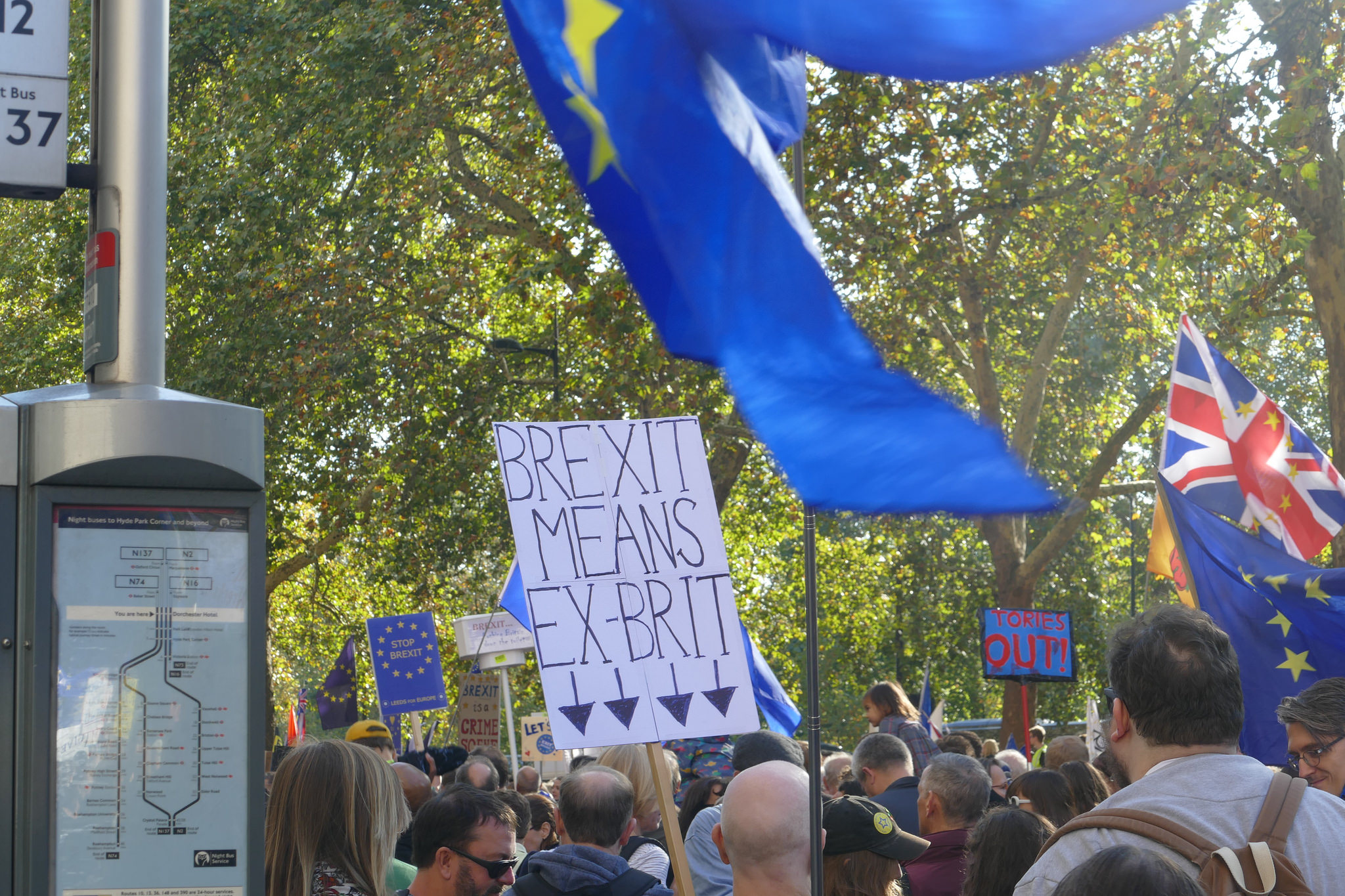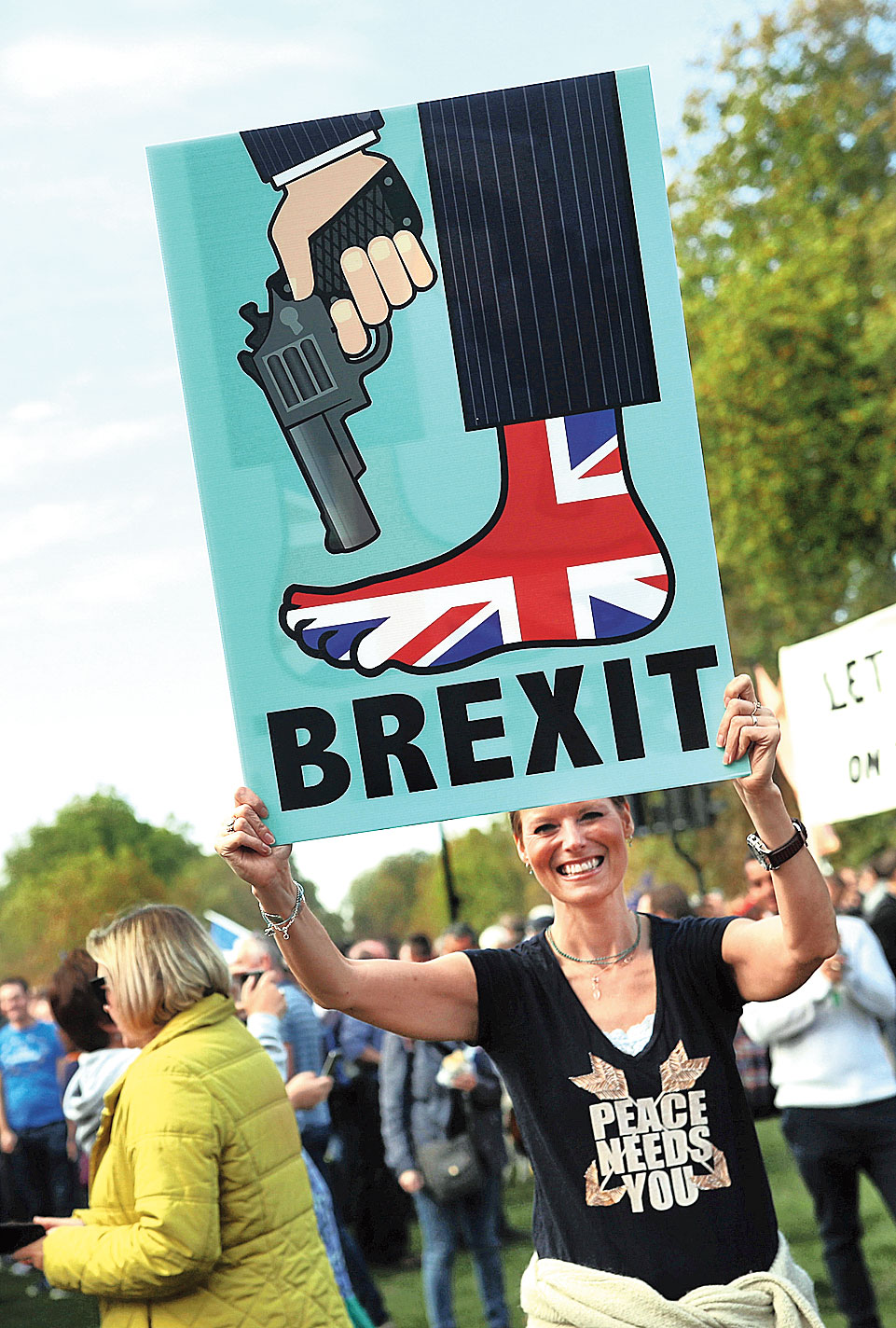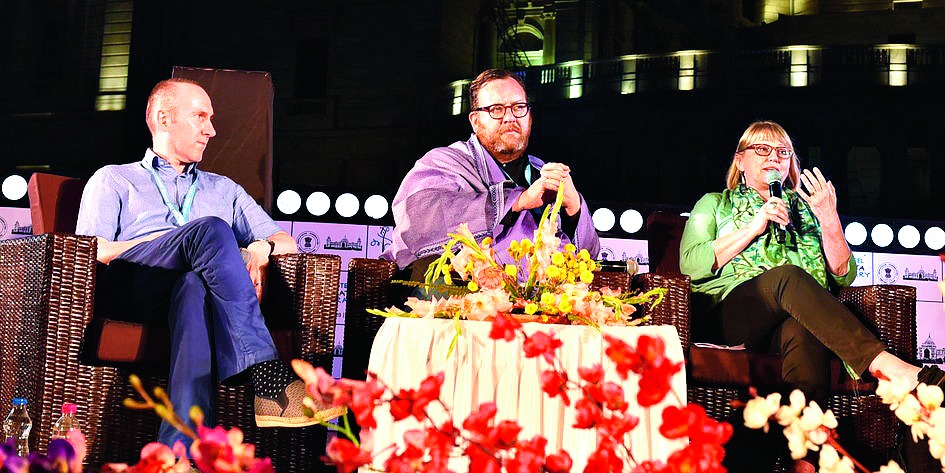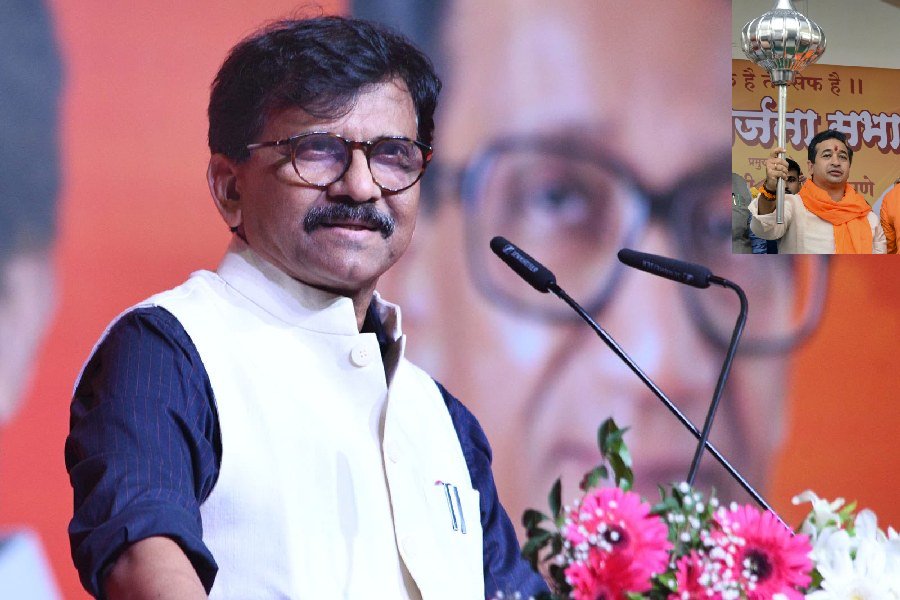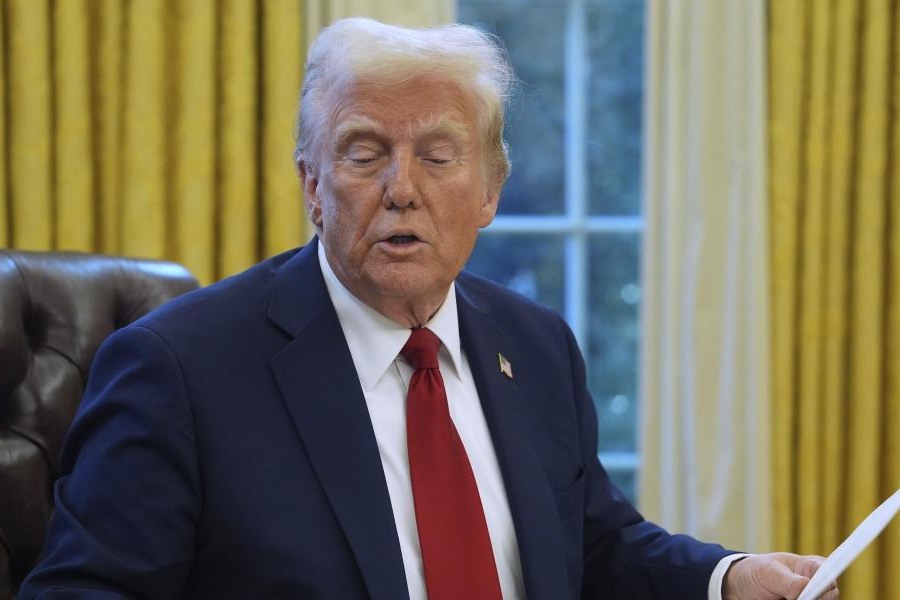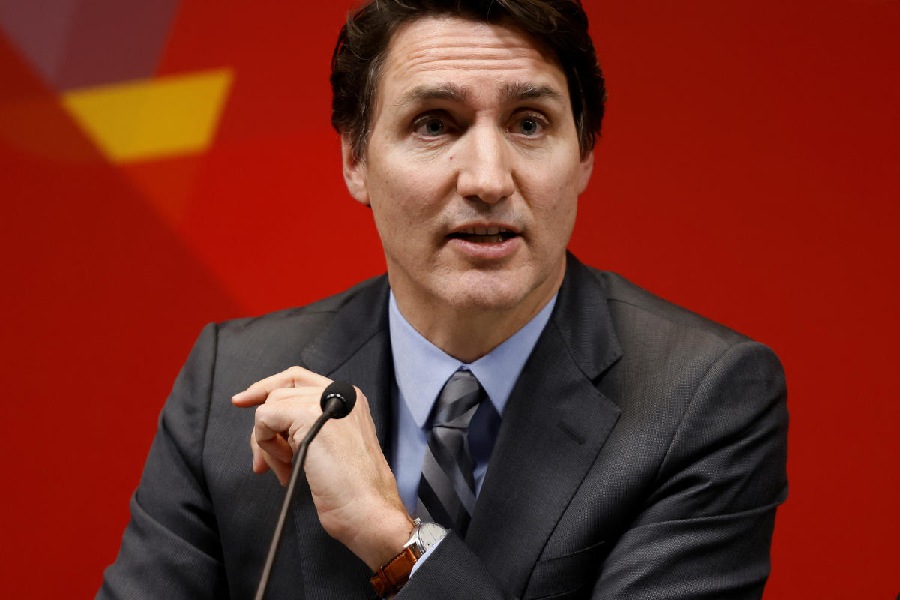To my dying day, I shall never forget seeing the Duke of Wellington’s house at Hyde Park Corner surrounded by a vast sunlit crowd waving the European flag. The breathtaking demonstration for a People’s Vote may yet prove a turning point, the beginning of the end of Brexit. It was, in any case, a great democratic moment.
In such moments, the people speak in the most direct, unmediated fashion imaginable, through spontaneous chants and home-made placards: ‘My grandfather died for EU’, ‘Fromage not Farage’, ‘Theresa May Not’. I liked the very British ‘The EU Is Rather Good’ (let’s not go over the top here). ‘I Can Get a Better Deal at Waitrose’ might betray a distinctly English middle class frame of reference, but then I spied a huge banner asking ‘Would an Honourable Country Renege on a Peace Treaty? No Hard Border in Ireland’. I was most moved by a small handwritten cardboard placard, little larger than a cereal packet, proclaiming, ‘Freedom, I will not give EU up’. To people in Poland, Spain or Ukraine, the idea of equating Europe with freedom is entirely familiar, but here, in the heart of England, it was almost a shock.
I have walked with many vast crowds demonstrating for freedom and Europe in Warsaw, Belgrade, Prague or Berlin, but this is the first time I have participated in something comparable in my own country. I remember a student saying to me during the Orange Revolution in Ukraine that all she had to contribute on this day was the physical presence of her body on the Maidan, Kiev’s central square. One of the original, revolutionary ideas of democracy is the equality of all citizens, and here we were all equal. The brain surgeon, the student, the plumber and the pensioner, each spoke through the elementary fact of the physical presence of another body on the square; each of us counted for one equal unit, nothing more, nothing less. It really doesn’t matter whether we were the 700,000 claimed by the organizers, or 600,000, or even just (just!) half a million. The aerial photographs show that it was as huge as it felt on the ground, certainly the biggest demonstration in London since that against the Iraq war.
In its direct, hand-written creativity and elemental, corporeal equality, this march recalled those East European ones, but there are two fundamental differences. First, here we had nothing to fear from the police or the security forces. Second, while those were attempts to use people power to win through from dictatorship to democracy, this was part of the organic working of a functioning democracy — and, as the statues around Parliament Square reminded us, not just any democracy but one of the oldest in the world.
The message from the whole demonstration, delivered right in front of a Big Ben encased (a visual metaphor?) in scaffolding, was that our MPs must vote down the bad deal or no deal that Theresa May will bring back and give the decision back to the people. The next thing we British Europeans have to do is to write to our MPs (see the template and instructions at `Write This Wrong`) — not a follow-up that would have occurred to anyone in Kiev, Belgrade or Prague. This is not people power versus parliamentary power, but direct and representative democracy going hand-in-hand, each strengthening the other.
As I trudged back up the stairs at Oxford station, footsore and weary, a red-haired woman coming down the other way glanced across and surprisingly exclaimed, “the will of the people has changed… good!” It took me a discombobulated moment to realize that she was reading the slogan on a handmade cardboard sign carried by the returning demonstrator ahead of me, and adding her own commentary.
Realistically, there’s still a mountain to climb before we attain that end. There are just a few weeks left to persuade some more MPs to put country before party and the national interest before their own selfish interests. But after this extraordinary manifestation of people power, I’m more than ever convinced that we have a chance.
This was a good day for the rest of Europe too, for what it shows is that when people feel all the historic advantages of membership in the European Union are really under threat, they will mobilize to support it. Yes, even the English.

